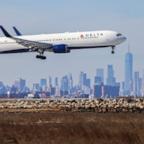Avoiding Net traffic tie-ups could cost you in future
— -- Back in the days of dial-up, Internet users were content to watch text download onto screens, one excruciating line at a time.
Nowadays, people get annoyed if they have to wait more than a few seconds for downloads to their PCs, laptops or mobile devices. They also want Hollywood-quality video feeds for everything from TV shows and blogs to breaking news.
"People's expectations of the Internet have changed significantly," says Imran Shah, co-founder and managing partner of IBB Consulting in Boston. "As soon as they click, they expect video to be a seamless experience."
The good news for consumers is that the Web is awash with cool new applications — such as high-definition video — that tap into the power and reach of the Internet. The bad news: Net obsession in the future could cost you.
The basic problem: Consumers are becoming enamored with applications such as streaming high-definition video that eat up a lot of bandwidth. It was OK so long as those applications were on the fringe, with few users. But pressure on broadband networks ratchets up significantly once millions of people start engaging in bandwidth-intensive activities simultaneously, says Suraj Shetty, a senior director at Cisco, the big equipment maker.
Pushing the trend along, he says, is the explosion of digital cameras and other Web-enabled devices. Peer-to-peer services, which give users a cheap way to share, steal and borrow files from computers worldwide, are another a factor, he says. More than 60% of Web traffic is generated by peer-to-peer computing. "These are the challenges of the 21st century," Shetty says.
Paying for what you use
By 2010, the average household will be using 1.1 terabytes (roughly equal to 1,000 copies of the Encyclopedia Britannica) of bandwidth a month, according to an estimate by the Internet Innovation Alliance in Washington, D.C. At that level, it says, 20 homes would generate more traffic than the entire Internet did in 1995.




